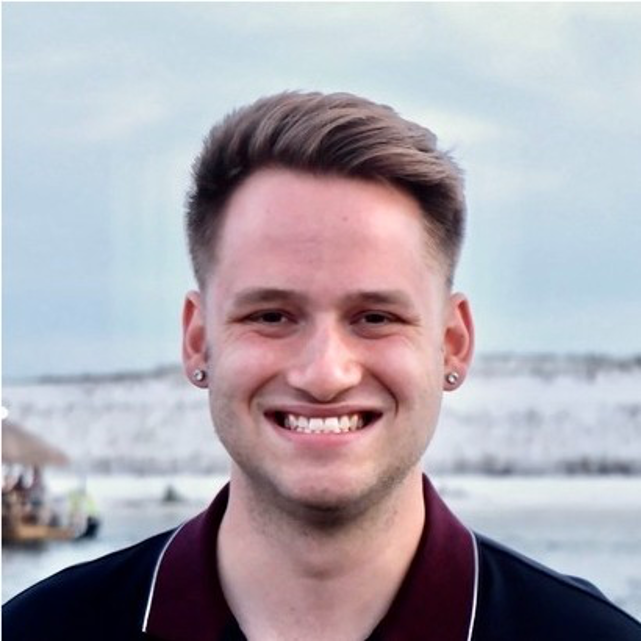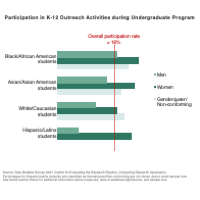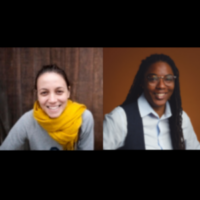CRA-E’s Undergraduate Research Highlights: ASU Student Decides to Research Group Decision-Making

CRA-E’s “Undergraduate Research Highlights” series showcases outstanding research done by undergraduate students at universities and colleges across North America. Each article features the story of a successful undergraduate researcher and offers personal insights into their experiences with finding an advisor, undertaking new research projects, and discovering how research can impact their personal and professional future. It is one of a number of CRA-E’s activities that foster and recognize talented computing researchers with the goal of increasing the research pipeline, promoting graduate education, and advocating research-based careers.
In addition to helping students understand the process of getting involved in research, the articles also serve as a venue for students to pass along advice to others who aspire to become involved in research themselves. Students selected for the research highlights include those receiving recognition in the CRA Outstanding Undergraduate Researcher Award competition. This series is written and edited by CRA-E Graduate Fellows.

ASU Student Decides to Research Group Decision-Making
Ryan Kemmer, B.S. Computer Science, Arizona State University
This Q&A highlight features Ryan Kemmer, an Honorable Mention in the 2021 CRA Outstanding Undergraduate Researchers award program. Ryan graduated from Arizona State and is now a Software Development Engineer at Amazon. This interview has been edited for length and clarity.
What originally influenced you to consider doing research as an undergraduate?
I had some friends who were involved in research and had rewarding career opportunities as a result of their work. Seeing how much they learned and grew from being involved in their research projects inspired me to take a leap of faith and get involved in projects of my own.
How did you find your research opportunity and hone in on a project?
I met my PI [principal investigator], Dr. Adolfo Escobedo, after taking his Operations Research elective my junior year. During his office hours, I learned about some of his research and immediately became interested.
Dr. Escobedo had been studying some group decision-making algorithms and wanted to test their capabilities in human computation experiments. I helped bring this research initiative to life. In collaboration with computer science professor Dr. Ross Maciejewski and industrial engineering grad student Yaewon Yoo, we investigated best practices for collecting and aggregating data from a large number of people. Our work shows that varying input format and algorithm can significantly affect the accuracy of crowdsourced estimates. The figure below shows an example of a dot-counting estimation task we gave to our study participants.

Figure: Web application for evaluating group decision-making algorithms.
Source: https://github.com/ryankemmer/dotsactivity-data/blob/master/public/images/images/ratings.png
We presented this work at the Eighth AAAI Conference on Human Computation and Crowdsourcing (HCOMP). I also presented at ASU’s Fulton Undergraduate Research Initiative (FURI) Symposium.
What challenges did you encounter when first getting started in research?
Initially, the sense of ambiguity was difficult for me. Because research is such an exploratory process, it was hard to figure out what parts of the project to prioritize. This helped me learn a lot about the scientific process and how to be a more creative engineer.
Where did you work on the research? Was there anything about your work environment(s) that was especially interesting or helpful for your research?
Most of the research was performed at the ASU Center for Accelerating Operational Efficiency, a lab that has many graduate students and postdocs working on computer science and industrial engineering projects. The environment was very fun and collaborative, and I met a lot of very interesting researchers.
What skills did you develop as a researcher?
I really enjoyed improving my writing abilities. I was constantly drafting out literature reviews, results, and conclusions about my work. This really helped improve my writing skills and has given me a big appreciation for the writing process as a whole.
My project required developing and maintaining a web application to collect and retain a large body of data from human studies. I had to learn JavaScript, figure out how to maintain our database, and set up the web hosting. This work helped me become a much better developer.
How has participating in research shaped your professional path?
Through research, I developed a passion for computer science. It led me to pursue a job in data science right after college, where I applied a lot of the knowledge I learned from participating in research.
Do you have any advice for other students looking to get into research?
If you’re curious about research, find a professor working on something you find interesting and ask to get involved. It might seem intimidating at first, especially working with people much more experienced than you, but the only way to learn is to just dive in and start!
— Edited by Ian Ludden and Nadia Ady









